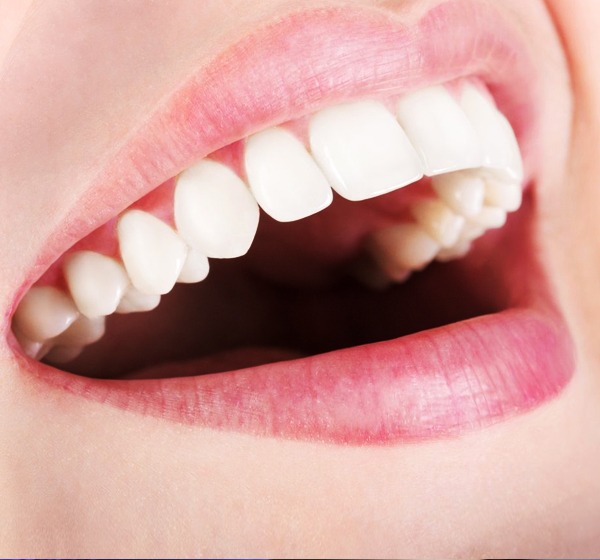What Happens During Dental Hygiene Cleaning?
A healthy smile is more than just brushing and flossing your teeth at home. While these habits are essential for daily oral care, there’s another important step in maintaining your oral health—dental hygiene cleaning. At Longwood House Dental Care in Ilford, we offer professional dental cleaning services to ensure that your teeth and gums remain in top shape, preventing serious dental problems and promoting long-term oral health.
In this blog, we’ll explain what happens during a dental hygiene cleaning appointment, why it’s important, and how regular visits can benefit your overall health. If you’re wondering why a professional cleaning is necessary and what to expect, keep reading.
What is Dental Hygiene Cleaning?
Dental hygiene cleaning is a professional service performed by a trained dental hygienist that goes beyond what regular brushing and flossing can do. It involves removing plaque and tartar buildup from your teeth—substances that can contribute to gum disease, cavities, and bad breath. During a cleaning, the dental hygienist uses special instruments to remove plaque and tartar from areas that regular oral care cannot reach.
Plaque is a sticky film of bacteria that forms on your teeth, and when it hardens, it turns into tartar. Tartar is much more difficult to remove and can only be properly addressed by a professional cleaning.
Why is Dental Hygiene Cleaning Important?
Regular dental hygiene cleaning offers a multitude of benefits, helping to prevent both immediate and long-term dental issues. Here’s why you should prioritise professional cleanings:
- Prevents Gum Disease
Plaque and tartar buildup are the leading causes of gum disease. If left unchecked, plaque can irritate the gums, causing gingivitis (inflammation of the gums). If gingivitis is untreated, it can lead to more severe conditions, such as periodontitis, which may result in tooth loss. Regular cleanings remove plaque and tartar, helping you avoid these issues.
- Protects Against Cavities
Plaque and tartar buildup can lead to tooth decay. A professional cleaning ensures that these harmful substances are removed from your teeth, protecting your enamel and reducing your risk of cavities.
- Freshens Breath
Bad breath, also known as halitosis, is often caused by bacteria buildup in the mouth. By removing plaque and tartar, professional cleanings help eliminate the bacteria responsible for bad breath, leaving your mouth feeling fresher.
- Identifies Problems Early
Regular cleanings allow your dentist to spot potential dental problems early, such as cavities, gum disease, or other oral health issues. The sooner these problems are detected, the easier and more affordable it is to treat them.
- Brightens Your Smile
Professional cleaning removes surface stains caused by food, beverages, and smoking. This helps restore the natural whiteness of your teeth and enhances your smile’s overall appearance.
What Happens During Your Dental Hygiene Cleaning Appointment?
At Longwood House Dental Care, we aim to make your dental hygiene cleaning as comfortable and thorough as possible. Here’s what you can expect during your visit:
Step 1: Initial Consultation and Assessment
Your visit begins with an initial consultation where the dentist or hygienist will review your medical and dental history. We’ll assess your overall oral health, including checking your teeth and gums for signs of decay, gum disease, or other issues. If you have any specific concerns, feel free to share them with the team so we can address them during your visit.
Step 2: Professional Cleaning
The actual cleaning process involves removing plaque and tartar from your teeth using specialised tools:
- Scaling: This is the process of removing plaque and tartar from your teeth, particularly from below the gumline. The dental hygienist uses hand-held tools or ultrasonic devices to carefully clean your teeth. The ultrasonic scaler uses sound waves to break up tartar, while the hand tools are used for precise scraping.
- Polishing: After scaling, your hygienist will polish your teeth to remove surface stains and leave your teeth smooth. This step also helps prevent plaque from building up quickly.
Step 3: Fluoride Treatment
After cleaning and polishing, a fluoride treatment is often applied. Fluoride is a mineral that helps strengthen tooth enamel and prevent decay. It’s typically applied in the form of a gel or foam, which is placed in a tray that fits over your teeth for a few minutes. This simple treatment gives your teeth an added layer of protection.
Step 4: Post-Cleaning Care
After the cleaning, we’ll provide you with specific aftercare instructions. These may include advice on maintaining good oral hygiene at home, such as brushing and flossing techniques, as well as recommendations for products like mouthwash or toothpaste. We will also discuss when to schedule your next cleaning, typically every six months, to maintain optimal oral health.
How Often Should You Have Dental Hygiene Cleaning?
For most people, dental hygiene cleaning should be done every six months. This ensures plaque and tartar do not build up to the point where they cause serious dental issues. However, some patients may need more frequent visits:
- If you have gum disease, your dentist may recommend more frequent cleanings to keep your gums healthy.
- Smokers, those with diabetes, or people with other health conditions that affect oral health may also need more frequent cleanings.
- Orthodontic patients or those with braces should often have cleanings more frequently to prevent plaque buildup around the brackets and wires.
During your visit, your dentist will assess your oral health and recommend an appropriate schedule for your cleanings.
What Are the Benefits of Regular Dental Hygiene Cleaning?
- Improved Overall Health
Regular cleanings help reduce the risk of gum disease and tooth decay, improving your overall oral health and preventing more serious conditions down the line.
- A Brighter Smile
Cleanings not only help improve your dental health but also brighten your smile by removing surface stains and keeping your teeth looking fresh.
- Prevention of Future Problems
Regular dental hygiene cleanings are an effective way to prevent future oral health problems, saving you from the discomfort and expense of more invasive treatments.
- Confidence Boost
With a clean, healthy smile, you can feel confident in social and professional situations, knowing your teeth are well-maintained.
Why Choose Longwood House Dental Care for Your Dental Hygiene Cleaning in Ilford?
At Longwood House Dental Care, we are committed to providing the highest quality care to ensure your teeth and gums stay healthy. Here’s why patients in Ilford trust us with their dental hygiene needs:
- Expert Team: Our experienced dentists in Ilford and dental hygienists are trained to provide thorough and effective cleanings.
- State-of-the-Art Equipment: We use the latest dental technology and tools to ensure your cleaning is comfortable and effective.
- Personalised Care: We focus on tailoring each treatment to your individual needs, ensuring your oral health goals are met.
- Convenient Location: Our Dental Clinic in Ilford, Essex IG5 0BE stands in convenient location, we offer flexible scheduling options to fit your busy lifestyle.
Frequently Asked Questions (FAQs)
How long does a dental hygiene cleaning take?
A typical dental hygiene cleaning takes between 30 and 60 minutes, depending on the condition of your oral health.
Does dental hygiene cleaning hurt?
Generally, dental cleanings are not painful, though some patients may feel mild discomfort, especially if they have sensitive gums.
How often should I get a dental hygiene cleaning?
It’s recommended to have a cleaning every six months, but patients with specific oral health needs may require more frequent cleanings.
Can dental hygiene cleaning help with bad breath?
Yes, by removing bacteria and plaque, a dental cleaning can improve breath freshness and help eliminate bad breath.
Is fluoride treatment necessary after cleaning?
Fluoride helps strengthen your enamel and prevents tooth decay. While optional, it is highly recommended as part of your routine cleaning.





